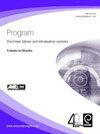Instrument development and contextualization for perceived characteristics of e-transactions
Q Social Sciences
Program-Electronic Library and Information Systems
Pub Date : 2017-03-22
DOI:10.1108/PROG-04-2016-0035
引用次数: 2
Abstract
Purpose The purpose of this paper is to identify and develop a contextualized model and instrument to assess citizens’ transactions with government organizations, with a view to predicting and elucidating acceptance of e-transactions. For this purpose, a research model (perceived characteristics of e-transactions acceptance) is developed. Design/methodology/approach In order to analyze e-transaction acceptance and identify the requirements of the research context, several models were considered. An approach was employed to contextualize or localize the theoretical model, questionnaire items, and the instrument. An online survey gathered the responses of 663 Saudi citizens. Findings Exploratory and confirmatory factor analyses showed that the measurement model was the most suitable for the collected data. In addition to developing a conceptual research model and instrument, the present study provides a rigorous methodology for contextualizing the model, questionnaire items, and the instrument. Originality/value This paper develops an original instrument derived from rigorous information systems methodology research. The research model could also be utilized in emerging economies that are implementing e-government to improve the development of e-government services and facilitate acceptance of electronic government transactions, ultimately enhancing citizens’ lives.电子交易感知特征的工具开发和情境化
目的本文的目的是确定和开发一个情境化的模型和工具来评估公民与政府组织的交易,以预测和阐明电子交易的接受程度。为此,开发了一个研究模型(接受电子交易的感知特征)。设计/方法/方法为了分析电子交易的接受情况并确定研究背景的要求,考虑了几个模型。采用了一种方法来将理论模型、问卷项目和工具情境化或本地化。一项在线调查收集了663名沙特公民的回复。探索性和验证性因素分析表明,测量模型最适合收集的数据。除了开发概念研究模型和工具外,本研究还为模型、问卷项目和工具的情境化提供了严格的方法。原创性/价值本文从严格的信息系统方法论研究中开发了一种原创工具。该研究模式也可用于正在实施电子政务的新兴经济体,以改善电子政务服务的发展,促进接受电子政府交易,最终改善公民的生活。
本文章由计算机程序翻译,如有差异,请以英文原文为准。
求助全文
约1分钟内获得全文
求助全文
来源期刊

Program-Electronic Library and Information Systems
工程技术-计算机:信息系统
CiteScore
1.30
自引率
0.00%
发文量
0
审稿时长
>12 weeks
期刊介绍:
■Automation of library and information services ■Storage and retrieval of all forms of electronic information ■Delivery of information to end users ■Database design and management ■Techniques for storing and distributing information ■Networking and communications technology ■The Internet ■User interface design ■Procurement of systems ■User training and support ■System evaluation
 求助内容:
求助内容: 应助结果提醒方式:
应助结果提醒方式:


